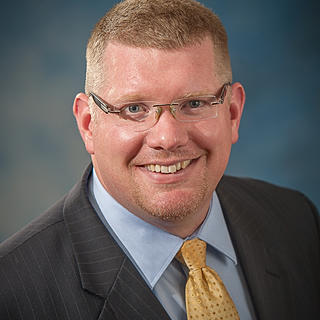Organ Donation: Making Your Wishes Known (Part 1 of 2)
- Chad A. Ritchie, Esq.
- Nov 21, 2022
- 4 min read
Updated: Jun 4

When I meet with estate planning clients, one topic that will eventually come up is organ donation. Most clients know right away if they want to be an organ donor or not, but there are still many questions about how organ donation works.
In part one of this two-part blog article series, we will discuss how you make your wishes about organ donation officially known.
HOW TO BECOME AN ORGAN DONOR
1. In Illinois, the organ donation process is governed by the Illinois Anatomical Gift Act. (755 ILCS 50/1-1 et. seq.)
2. Anyone that is 16 or older in Illinois can sign up directly with the Illinois Organ/Tissue Donor Registry to become an organ donor. You can CLICK HERE to go to the Donor Registry. This registry is maintained by the Illinois Secretary of State’s office. This registry is considered a “First Person Consent” and additional witness or family consent is no longer needed if you sign up directly with the Illinois Organ/Tissue Donor Registry.
3. If you have not directly registered with the Illinois Organ/Tissue Donor Registry, you can alternatively make your organ donation wishes known by doing the following:
Designating yourself as an organ donor on the back of your Illinois driver’s license.
Including an organ donation statement in your Will. (This is generally not recommended due to time sensitivity of organ donation once someone has died and not finding or seeing someone’s Will until much later.)
Note: Family Members can legally object to organ donation instructions on a driver’s license or Will. But, they cannot object if done through the First Person Consent – Illinois Organ/Tissue Donor Registry.
4. If you have not registered through the Illinois Organ/Tissue Donor Registry, then your Power of Attorney for Healthcare can make anatomical gifts of your organs upon your death - UNLESS – your POA-Healthcare document prohibits your Healthcare Agent from making organ donation on your behalf.
Note: At RLO we include specific instructions in your POA-Healthcare on whether you do or do not want to be an organ donor.
5. If you have not signed a Healthcare Power of Attorney document to formally designate a Healthcare Agent to make anatomical gifts on your behalf then that decision can be made by members of various classes of people in the following successive order:
First Class: Healthcare Power of Attorney
Second Class: Court Appointed Guardian of the Person of the Decedent
Third Class: Spouse of the Decedent
Fourth Class: Adult Children of the Decedent
Fifth Class: Adult Siblings of the Decedent
The statute continues to lists other classes until it can find someone to authorize organ donation including a close friend of the decedent or the last class of persons --- “any other person authorized under legal obligation to dispose of the body”.
Note: If you have multiple adult children and they don’t all agree on organ donation – the statute says that a majority of your children can make the binding decision.
Note: If you have a signed Healthcare Power of Attorney – your agent will be the first person with the legal authority to decide organ donation on your behalf.
So to summarize . . . .
IF YOU WANT TO BE AN ORGAN DONOR
1. Register with the Illinois Organ/Tissue Donor Registry. This is a “First Person Consent” form meaning that once you register no additional witnesses or family consent is needed to carry out your wishes.
2. Be sure to get a new driver's license updated with your new organ donor status.
3. Whether you have registered with the Illinois Organ/Tissue Donor Registry or not, you should include Organ Donation Guidance/Instructions in your Healthcare Power of Attorney Document.
4. Tell your Healthcare Agent and family members you are an organ donor.
IF YOU DO NOT WANT TO BE AN ORGAN DONOR
1. Tell your family members your desire not to be an organ donor.
2. Update your Power of Attorney for Healthcare to prohibit your Healthcare Agent from making any kind of anatomical gifts upon your passing.
3. Share your decision to not be an organ donor with your close family and friends, regardless of whether they agree with your decision or not.
In Part 2 of our Blog Article Series on Organ Donation we will cover the organ harvesting process when someone dies and how a recipients of organ donations are selected. We will also cover common questions I hear the most from clients about Organ Donation.
This article is a service of Attorney Chad A. Ritchie and the Ritchie Law Office, Ltd.
Click Here or call (309) 662-7000 to learn more about Ritchie Law Office, Ltd. and our Estate Planning process, which starts with an initial consultation called our “Ritchie Legacy Planning Session”.
To sign up for the Ritchie Law Office, Ltd. monthly newsletter, click here! Keep up with estate planning news, federal and state legislation affecting your estate plans, and the latest events and happenings at Ritchie Law Office, Ltd.
.jpg)







